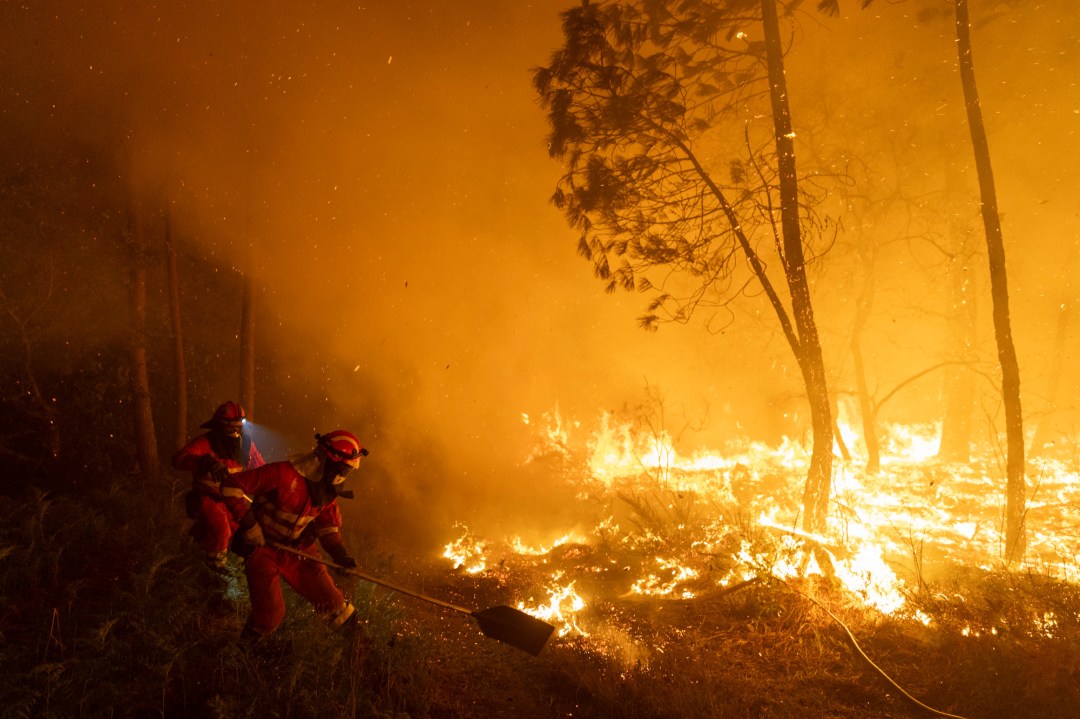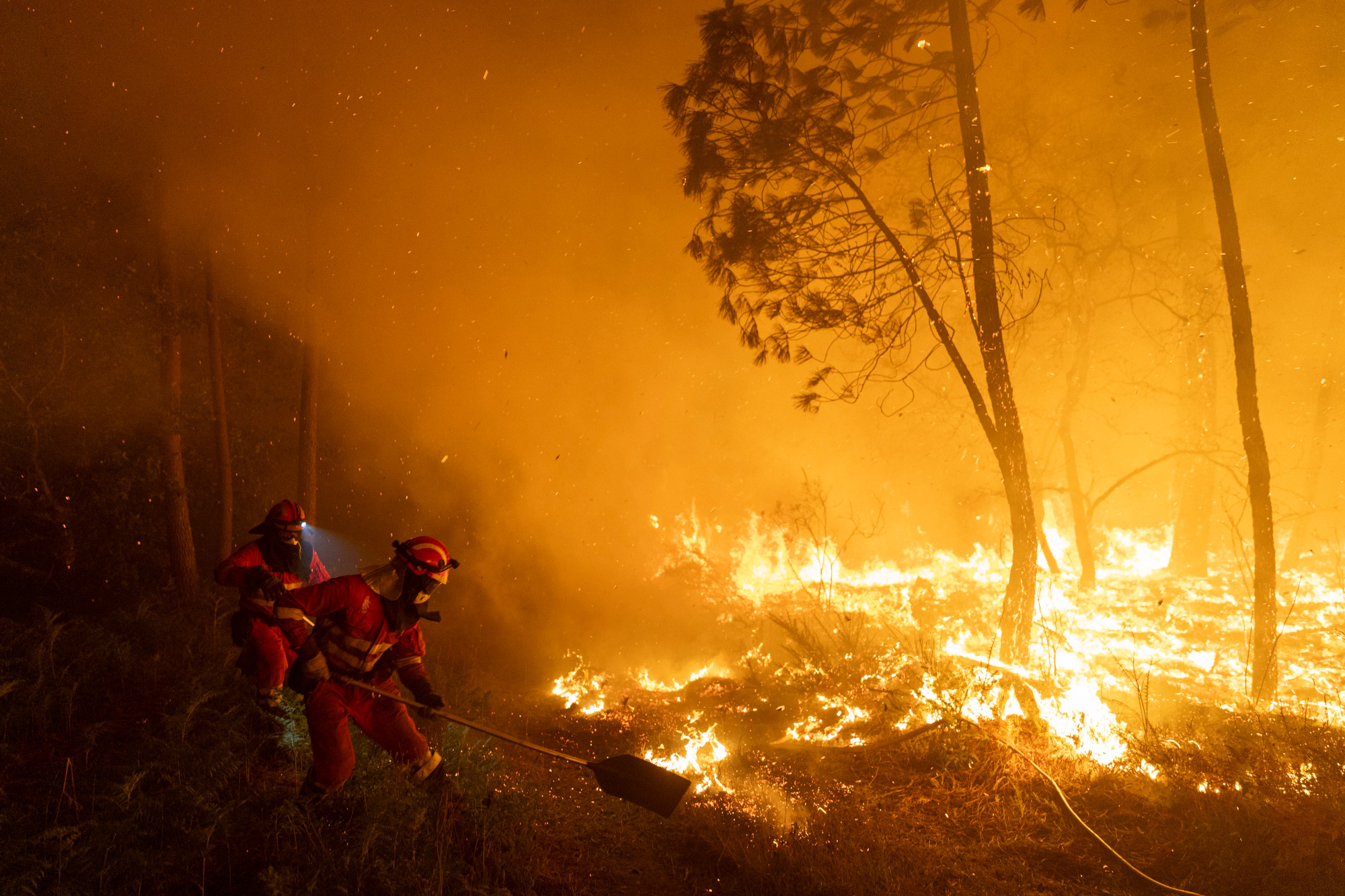Since early August, Spain has been reeling from its worst forest fires in decades. Exact estimates vary but so far more than 360,000 hectares – an area the size of Mallorca – have been destroyed in dozens of blazes. The flames have forced the evacuation of thousands of villagers, wiped out tens of thousands of hectares of farmland and killed at least four people. The Camino de Santiago pilgrimage, a major source of tourist revenue, has been partly closed and the high-speed rail link between Madrid and the north-west was suspended for seven days. The financial cost is expected to run to hundreds of millions of euros. The forests may take decades to regenerate.
The firemen complain of ancient equipment, poor conditions and insufficient training
The immediate cause is obvious: a long, hot, dry summer, capped by a 16-day heat wave during which temperatures reached 45°C combined with strong winds. The fires have raged mostly across western and north-western Spain where, after decades of exodus from country villages, the population density in some areas is similar to Lapland’s. In places where previously villagers would clear undergrowth and cut firebreaks now there is only scrub, tinder and pine. In many villages the average age of the few who remain is close to 60; elderly residents can only shake their heads in dismay as the land around them grows dense with combustible vegetation.
These remaining villagers have little time for the politicians. One said, ‘We are fighting this alone, I repeat, alone.’ Ignoring evacuation orders, villagers have organised night-watch shifts to monitor possible flare-ups: ‘I stayed to defend what was mine – along with my neighbours, with our hoses and our buckets.’ The condemnation of the politicians first heard after last year’s devastating floods in Valencia is circulating again: ‘Only the people can save the people.’
Spain is a heavily decentralised country divided into 17 autonomous regions. While the central government is left-wing, the regions hardest hit by the fires – Castile-León, Galicia and Extremadura – are governed by the right-wing Partido Popular. That is a problem because Spain’s political life is woefully polarised and brutally adversarial; the animosity between left and right runs very deep. In this case the division of responsibilities – fire prevention and forestry management are largely the regions’ responsibilities but the central government has to be ready to provide additional aircraft and military emergency units if required – has left abundant scope for mutual recrimination.
Preparations were clearly inadequate. The firemen complain of ancient equipment, poor conditions and insufficient training; when Castile-León’s regional president turned up to thank them for their efforts, they refused to shake his hand. The central government meanwhile was overwhelmed by the regions’ simultaneous requests for help and had to call on its EU partners. It was no surprise then that Prime Minister Pedro Sánchez has also been jeered when visiting affected areas.
But rather than address their failures, the politicians have, as usual, traded insults. The transport minister, socialist Óscar Puente, was quick to blame the regions: ‘If we look back at the history of disasters in this country, there isn’t one that has found [the right-wing regional governments] at work.’ And he made a tone-deaf joke also aimed at the regional governments: ‘Things,’ he chuckled, ‘are getting a little hot.’ The right-wing Partido Popular’s spokesman, Elías Bendodo, displayed the same bad taste and desire to shift the blame when he described the central government’s head of civil protection as ‘just another pyromaniac’. In short, it’s the same disgraceful spectacle that Spain’s politicians produce every time something goes wrong.
At the time of writing the wildfires seem to be under control in the worst affected areas but the political ramifications are just beginning. Spain suffers major forest fires every summer and this year’s wet spring produced unusually dense vegetation – extra fuel. So everyone knew that these fires were a disaster waiting to happen. Yet prevention and fire-fighting measures were inadequate, underfunded and poorly coordinated. And, coming less than a year after 228 avoidable deaths in the Valencia floods, it’s clear that Spain’s politicians are once again a large part of the problem.








Comments